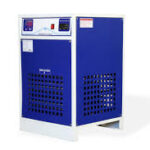Air Cooled Chillers
Air-cooled chillers function as refrigeration systems that use airflow to dissipate heat from the coolant or refrigerant, whereas water-cooled chillers require cooling towers and a steady water supply.
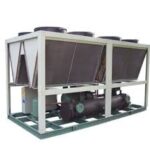
Water Cooled Chillers
Water-cooled chillers rely on water circulation to remove heat from the refrigerant, providing efficient cooling. They are widely used in factories, commercial spaces, and high-rise buildings.
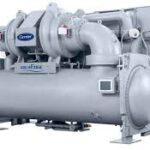
Screw Chillers
Screw chillers are designed for high-capacity cooling in various industries. They use screw compressors to deliver consistent and efficient operation. These chillers are ideal for continuous cooling
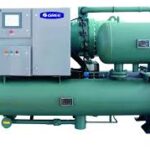
Variable Speed Chillers
Variable speed chillers use variable frequency drives (VFDs) to modify compressor speed as needed. This ensures precise cooling based on load variations. It enhances energy savings and system longevity.
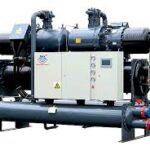
Oil Chiller
Oil chillers are designed to cool lubricating oil in various industrial applications. They keep the oil within a safe temperature range. This prevents overheating and ensures smooth machine operation.
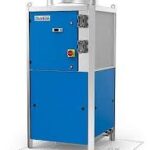
Hydraulic Oil Chiller
Hydraulic oil chillers maintain the temperature of hydraulic oil in industrial machines. They ensure smooth operation by preventing overheating. This leads to improved efficiency and reduced maintenance costs.
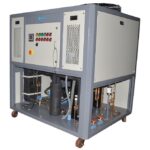
Online Chiller
Online chillers ensure constant cooling with advanced remote monitoring capabilities. They allow users to track and adjust settings online. This enhances efficiency and system reliability.
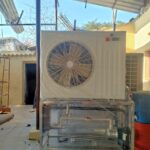
Glycol Chiller
Glycol chillers use glycol-based coolant for temperature regulation in industrial settings. They ensure consistent cooling in critical processes. Popular in breweries, wineries, and food processing industries.
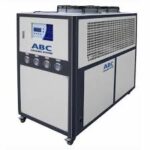
Spindle Chiller
Spindle chillers maintain optimal spindle temperatures in industrial machines. They prevent overheating in CNC and milling applications. This enhances precision and extends spindle life.
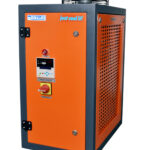
Refrigerated Air Dryer
Refrigerated air dryers help maintain dry compressed air by cooling and condensing moisture. They improve air quality in industrial setups. This protects tools and equipment from water damage.
